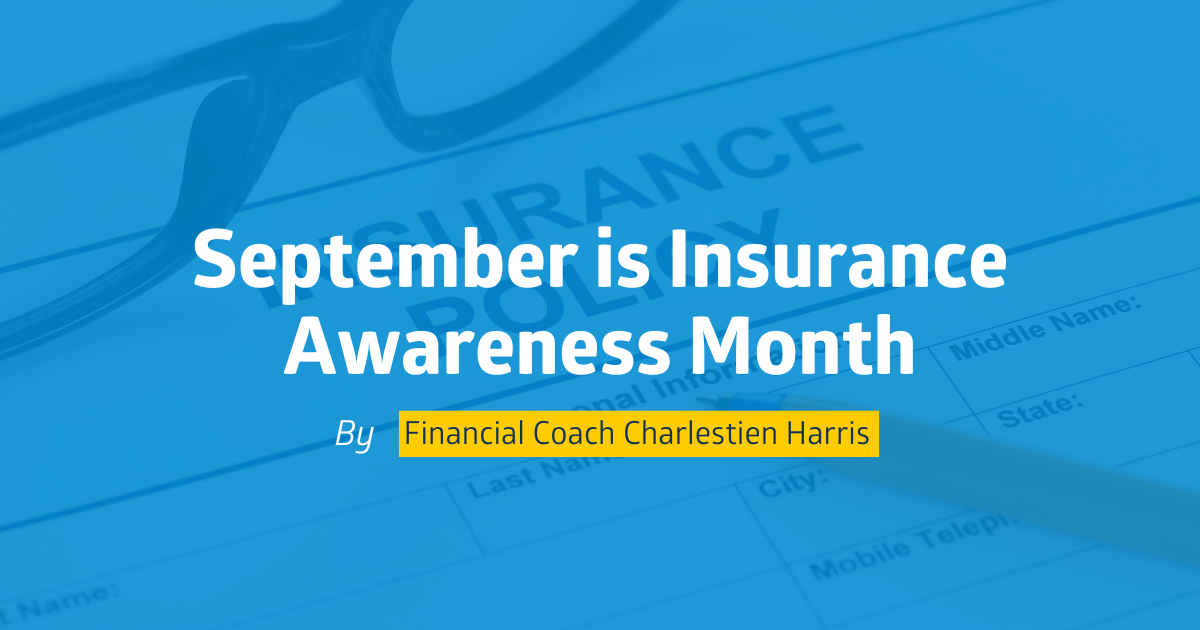Por Charlestien Harris, asesor financiero jubilado de Southern Bancorp
You might be asking yourself, “Why is having insurance so important?” Well, let me ask you this: How would you pay for an unexpected event like a car accident, a house fire, or a medical emergency?
Insurance is a means of protection from financial loss. In exchange for a fee, a party agrees to compensate another party in the event of a certain loss, damage, or injury. It is a form of risk management, primarily used to protect against the risk of a contingent or uncertain loss.
There are several different types of insurance. Let’s explore them to better understand what each one covers:
- Health Insurance
No one is completely healthy all the time, so having health insurance can help defray costs that could negatively impact your budget. This type of insurance covers medical expenses and may also include preventive care, prescriptions, and hospital stays. - Automobile Insurance
Auto insurance protects against financial losses from a car accident. It typically includes liability coverage (for damage you cause to others), collision coverage (for damage to your own car), and comprehensive coverage (for non-collision events like theft or natural disasters). The age, make, and model of your vehicle often determine the type of coverage required. Consult a licensed insurance agent to find the best fit for your needs. - Seguro de hogar
This insurance protects your home and belongings from damage due to events like fire, theft, or natural disasters. It also includes liability coverage if someone is injured on your property. Homeowners insurance is usually required before closing on a new home. - Disability Insurance
Disability insurance replaces a portion of your income if you’re unable to work due to illness or injury. Filing a claim involves strict rules and regulations, so be sure to understand the qualifying circumstances thoroughly. - Umbrella Insurance
Umbrella insurance provides an extra layer of liability protection beyond your existing auto and homeowners policies. It covers large judgments or serious incidents and can significantly strengthen your financial safety net when tragedy strikes unexpectedly. - Rental Reimbursement Insurance
Often added to auto policies, this coverage pays for a rental car while your vehicle is being repaired after a covered accident. I didn’t realize its importance until I had a car accident and didn’t have it. I added it afterward and was so glad I did! - Gap Insurance
For car loans, gap insurance covers the difference between your car’s actual cash value and the amount you still owe on your loan if your car is totaled. While it may increase your car note, it’s worth considering if you’re accident-prone. - Travel Insurance
Travel insurance covers unexpected events during a trip, such as medical emergencies, trip cancellations, or lost luggage. Some choose to purchase it, and some don’t – it’s entirely up to you. - Long-Term Care Insurance
This insurance pays for long-term care services, such as nursing home care, assisted living, or in-home care, which are often not covered by regular health insurance. - Life Insurance
Life insurance pays a lump-sum death benefit to your designated beneficiaries, helping them cover funeral costs, living expenses, or other financial obligations after your death.
Insurance helps cover costs for unexpected events – property damage from theft or fire, medical bills from injury or illness, or damage to your car in an accident. Knowing you have financial protection against potential disasters provides peace of mind and allows you to live with fewer worries about life’s uncertainties.
Without insurance, major incidents could lead to insurmountable debt or even bankruptcy. Insurance helps you recover and move forward without being financially devastated.
For more information, you can email me at charlestienharris77@gmail.com or write to me at P.O. Box 1825, Clarksdale, MS 38614.
Hasta la semana que viene: ¡manténgase en forma desde el punto de vista financiero!
